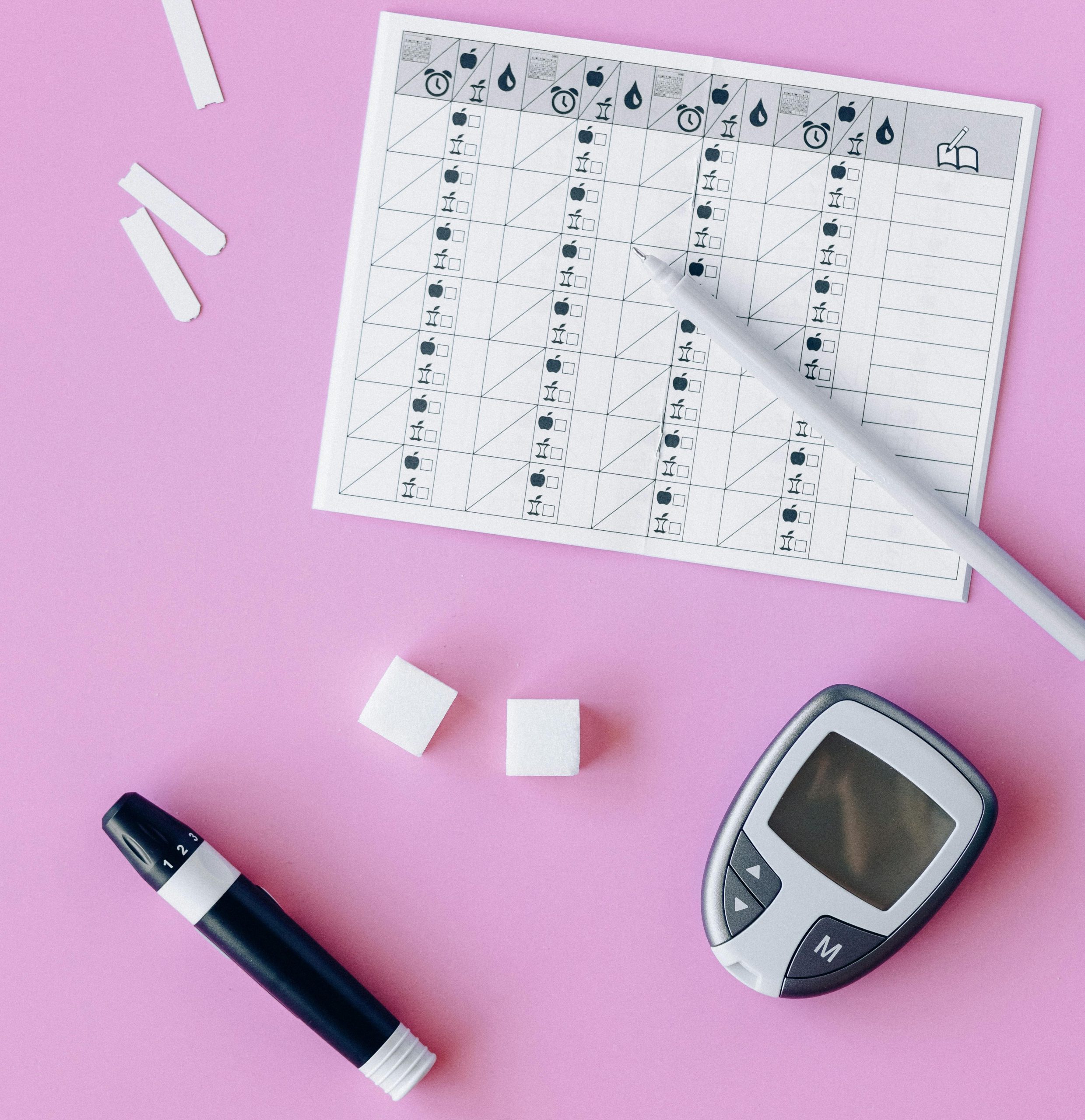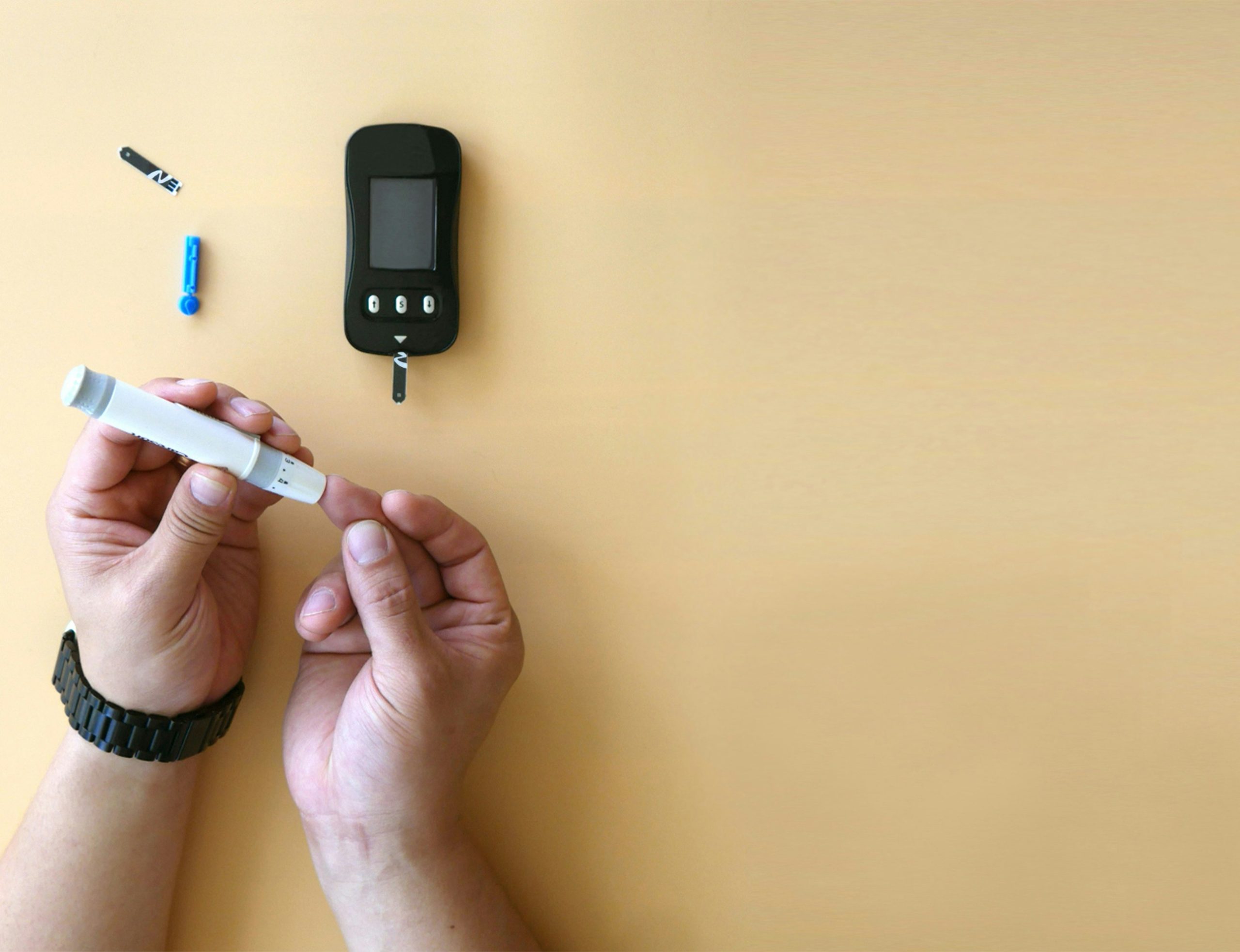
Can your period affect your blood sugar control?
Can Your Period Affect Your Blood Sugar Control?
Table of Contents
Introduction
The menstrual cycle can significantly impact blood sugar levels, especially in women with diabetes or insulin resistance. Hormonal fluctuations during the cycle affect how the body processes glucose and responds to insulin, leading to variations in blood sugar control (American Diabetes Association, 2022). These changes can present unique challenges in managing diabetes, making it essential to understand the interplay between hormones and blood sugar levels.
Ayurveda offers a holistic perspective, emphasizing the balance of doshas and hormonal harmony to support overall health and better glycemic control (Gupta & Singh, 2017). At the Diabetes Reversal Clinic, under the expert guidance of Dr. Soumya Hullanavar, we address these challenges through personalized care and lifestyle recommendations.

Can Your Period Affect Your Blood Sugar Control
How the Menstrual Cycle Affects Blood Sugar
1. Hormonal Fluctuations
The menstrual cycle is divided into two main phases, each characterized by specific hormonal changes that can influence blood sugar levels (Miller & Thompson, 2020):
- Follicular Phase (Days 1–14):
- Estrogen levels gradually increase, improving insulin sensitivity.
- Blood sugar levels may be more stable during this phase.
- Luteal Phase (Days 15–28):
- Progesterone levels rise, which can reduce insulin sensitivity.
- Blood sugar levels may fluctuate, leading to higher readings and increased insulin resistance.
2. Impact on Insulin Sensitivity
- Before the Period: Many women experience a temporary decrease in insulin sensitivity, especially in the week leading up to menstruation. This can lead to elevated blood sugar levels, a phenomenon sometimes called luteal phase insulin resistance (Smith, 2020).
- During the Period: Hormonal shifts and the physical stress of menstruation can cause unpredictable blood sugar variations.
- After the Period: As hormone levels stabilize, blood sugar levels may return to normal.
Common Symptoms of Blood Sugar Variability During the Menstrual Cycle
- High Blood Sugar Levels:
- Increased hunger and cravings, particularly for carbohydrates and sugary foods.
- Fatigue and difficulty concentrating.
- Low Blood Sugar Levels (less common):
- Shakiness, sweating, and irritability.
- Increased risk of hypoglycemia in women on insulin therapy.
Ayurvedic Perspective on Menstrual Cycle and Blood Sugar
In Ayurveda, the menstrual cycle is influenced by the balance of Vata, Pitta, and Kapha doshas. Imbalances during the cycle can lead to blood sugar fluctuations and other symptoms (Sharma, 2018):
- Vata Imbalance: Associated with irregular periods, cramps, and emotional stress, which can affect blood sugar levels.
- Pitta Imbalance: Linked to inflammation and heat, exacerbating insulin resistance.
- Kapha Imbalance: Leads to cravings, bloating, and weight gain, further complicating blood sugar control.
Ayurveda focuses on harmonizing these doshas to maintain hormonal balance and stabilize blood sugar levels throughout the cycle.
Strategies for Managing Blood Sugar During Your Period
1. Monitor Blood Sugar Closely
- Test blood sugar more frequently in the week before and during your period (American Diabetes Association, 2022).
- Keep a record of patterns to identify trends related to your cycle.
2. Adjust Insulin or Medication
- Work with your healthcare provider to make temporary adjustments to insulin or medication dosages if needed during the luteal phase.
- Avoid overcompensating to prevent hypoglycemia (Smith, 2020).
3. Balance Your Diet
- Kapha-Pacifying Foods: Include warm, light, and low-glycemic foods like steamed vegetables, lentils, and whole grains.
- Avoid Sugary Cravings: Satisfy cravings with naturally sweet foods like fruits instead of processed sugar.
- Stay Hydrated: Drink plenty of water to support kidney function and flush out excess glucose (Sharma, 2018).
4. Incorporate Physical Activity
- Gentle exercises like yoga, walking, or swimming can improve insulin sensitivity and reduce PMS symptoms (Miller & Thompson, 2020).
- Avoid intense workouts during heavy flow days to prevent undue stress.
5. Stress Management
- Practice mindfulness, meditation, and breathing techniques to manage emotional fluctuations and reduce cortisol levels, which can affect blood sugar (Sharma, 2018).
Ayurvedic Recommendations
1. Herbal Support
- Personalized potent Ayurvedic herbal preparations can help balance hormones and stabilize blood sugar (Gupta & Singh, 2017).
- Herbs traditionally used in Ayurveda are selected based on your constitution (Prakriti) and symptoms.
2. Detoxification
- Regular detox therapies help remove toxins (Ama) and improve metabolic function, promoting hormonal harmony (Chauhan, 2021).
3. Lifestyle Practices
- Follow a consistent daily routine (Dinacharya) to stabilize blood sugar and minimize hormonal disruptions (Sharma, 2018).
- Prioritize sleep, as poor rest can exacerbate blood sugar variability and PMS symptoms (Miller & Thompson, 2020).
Success Stories at the Diabetes Reversal Clinic
Case 1: Stabilizing Blood Sugar Variability
- Patient Profile: A 30-year-old female with Type 1 diabetes experiencing severe blood sugar spikes before her period.
- Intervention: Personalized diet, lifestyle modifications, and Ayurvedic herbal preparations.
- Outcome: Reduced premenstrual blood sugar fluctuations and improved energy within two cycles (EliteAyurveda, 2023).
Case 2: Managing Cravings and PMS Symptoms
- Patient Profile: A 35-year-old female with insulin resistance and severe cravings before her period.
- Intervention: Kapha-pacifying diet, stress management practices, and gentle yoga.
- Outcome: Reduced cravings, improved mood, and better blood sugar control within three months (EliteAyurveda, 2023).
From the Doctor’s Desk
Dr. Soumya Hullanavar shares:
“Hormonal fluctuations during the menstrual cycle can significantly impact blood sugar levels, but understanding these patterns empowers women to manage them effectively. At the Diabetes Reversal Clinic, we provide holistic solutions tailored to each patient, addressing the root causes of variability and promoting overall well-being.” (Hullanavar, 2023)
Why Choose the Diabetes Reversal Clinic?
- Holistic Approach: Integrates Ayurvedic wisdom with modern medical insights for personalized care.
- Expert Guidance: Led by Dr. Soumya Hullanavar, a specialist in Ayurvedic endocrinology.
- Customized Care: Treatments tailored to your unique constitution and menstrual patterns.
- Sustainable Results: Focus on long-term health and stable blood sugar control (EliteAyurveda, 2023).
Conclusion
The menstrual cycle can significantly affect blood sugar control, making it essential for women to monitor and manage their glucose levels proactively. By combining proper testing, dietary adjustments, and Ayurvedic care, you can navigate these hormonal changes with ease. At the Diabetes Reversal Clinic, we empower women to take charge of their health and achieve long-term stability.
📞 Contact us today: +91 8884722267
🌐 Visit: Diabetes Reversal Clinic
Related-
Know more about Ayurveda Diabetes Reversal Treatments.
GET IN TOUCH
Schedule a Visit
References
Click here for References
1.Cramer H.I. Influence of menstruation on carbohydrate tolerance in diabetes mellitus. Can. Med. Assoc. J. 1942;47:51–55. [PMC free article] [PubMed] [Google Scholar]
2.Didyuk O., Econom N., Guardia A., Livingston K., Klueh U. Continuous glucose monitoring devices: Past, present, and future focus on the history and evolution of technological innovation. J. Diabetes Sci. Technol. 2021;15:676–683. doi: 10.1177/1932296819899394. [DOI] [PMC free article] [PubMed] [Google Scholar]
3.Matsuda M., DeFronzo R.A. Insulin sensitivity indices obtained from oral glucose tolerance testing: Comparison with the euglycemic insulin clamp. Diabetes Care. 1999;22:1462–1470. doi: 10.2337/diacare.22.9.1462. [DOI] [PubMed] [Google Scholar]
4.Bergman R.N., Ider Y.Z., Bowden C.R., Cobelli C. Quantitative estimation of insulin sensitivity. Am. J. Physiol. 1979;236:E667–E677. doi: 10.1152/ajpendo.1979.236.6.E667. [DOI] [PubMed] [Google Scholar]
5.Gutch M., Kumar S., Razi S.M., Gupta K.K., Gupta A. Assessment of insulin sensitivity/resistance. Indian J. Endocrinol. Metab. 2015;19:160–164. doi: 10.4103/2230-8210.146874. [DOI] [PMC free article] [PubMed] [Google Scholar]
6.Januszewski A.S., Sachithanandan N., Ward G., Karschimkus C.S., O’Neal D.N., Jenkins A.J. Estimated insulin sensitivity in type 1 diabetes adult using clinical and research biomarkers. Diabetes Res. Clin. Pract. 2020;167:108359. doi: 10.1016/j.diabres.2020.108359. [DOI] [PubMed] [Google Scholar]
7.Moberg E., Kollind M., Lins P.E., Adamson U. Day-to-day variation of insulin sensitivity in patients with type 1 diabetes: Role of gender and menstrual cycle. Diabet. Med. 1995;12:224–228. doi: 10.1111/j.1464-5491.1995.tb00462.x. [DOI] [PubMed] [Google Scholar]
8.Cawood E., Bancroft J., Steel J. Perimenstrual symptoms in women with diabetes mellitus and the relationship to diabetic control. Diabet. Med. 1993;10:444–448. doi: 10.1111/j.1464-5491.1993.tb00096.x. [DOI] [PubMed] [Google Scholar]
9.Gamarra E., Fop F., Beccuti G., Bisio A., Grassi G. Menstrual cyclicity, sleep efficiency and unplanned physical activity: Glycemic response in women suffering from type 1 diabetes mellitus. J. AMD. 2016;19:105–112. [Google Scholar]
10.Tatulashvili S., Julla J.B., Sritharan N., Rezgani I., Levy V., Bihan H., Riveline J.-P., Cosson E. Ambulatory glucose profile according to different phases of the menstrual cycle in women living with type 1 diabetes. J. Clin. Endocrinol. Metab. 2022;107:2793–2800. doi: 10.1210/clinem/dgac443. [DOI] [PubMed] [Google Scholar]
11.Lundman B., Asplund K., Norberg A. Metabolic control, food intake and mood during the menstrual cycle in patients with insulin-dependent diabetes. Int. J. Nurs. Stud. 1994;31:391–401. doi: 10.1016/0020-7489(94)90079-5. [DOI] [PubMed] [Google Scholar]
12.Brown S.A., Jiang B., McElwee-Malloy M., Wakeman C., Breton M.D. Fluctuation of hyperglycemia and insulin sensitivity are linked to menstrual cycle phases in women with type 1 diabetes. J. Diabetes Sci. Technol. 2015;9:1192–1199. doi: 10.1177/1932296815608400. [DOI] [PMC free article] [PubMed] [Google Scholar]
13.Goldner W.S., Kraus V.L., Sivitz W.I., Hunter S.K., Dillon J.S. Cyclic changes in glycemia assessed by continuous glucose monitoring system during multiple complete menstrual cycles in women with type 1 diabetes. Diabetes Technol. Ther. 2004;6:473–480. doi: 10.1089/1520915041705875. [DOI] [PubMed] [Google Scholar]
14.Lunt H., Brown L. Self-reported changes in capillary glucose and insulin requirements during the menstrual cycle. Diabet. Med. 1996;13:525–530. doi: 10.1002/(SICI)1096-9136(199606)13:6<525::AID-DIA123>3.0.CO;2-D. [DOI] [PubMed] [Google Scholar]
15.Widom B., Diamond M.P., Simonson D.C. Alteration in glucose metabolism during menstrual cycle in women with IDDM. Diabetes Care. 1992;15:213–220. doi: 10.2337/diacare.15.2.213. [DOI] [PubMed] [Google Scholar]
16.Macdonald I., Scott A., Bowman C., Jeffcoate W. Effect of phase of menstrual cycle on insulin sensitivity, peripheral blood flow and cardiovascular responses to hyperinsulinaemia in young women with type 1 diabetes. Diabet. Med. 1990;7:57–62. doi: 10.1111/j.1464-5491.1990.tb01309.x. [DOI] [PubMed] [Google Scholar]
17.Moher D., Liberati A., Tetzlaff J., Altman D.G., the PRISMA Group Preferred reporting items for systematic reviews and meta-analyses: The PRISMA statement. BMI. 2009;339:b2535. doi: 10.1136/bmj.b2535. [DOI] [PMC free article] [PubMed] [Google Scholar]
18.Study Quality Assessment Tools | NHLBI, NIH. [(accessed on 16 November 2022)]; Available online: https://www.nhlbi.nih.gov/health-topics/study-quality-assessment-tools.
19.Herranz L., Saez-De-Ibarra L., Hillman N., Gaspar R., Pallardo L. Glycemic changes during menstrual cycles in women with type 1 diabetes. Med. Clin. 2016;146:287–291. doi: 10.1016/j.medcli.2015.11.044. [DOI] [PubMed] [Google Scholar]
20.Diaz C.J.L., Fabris C., Breton M.D., Cengiz E. Insulin replacement across the menstrual cycle in women with type 1 diabetes: An in-silico assessment of the need for ad-hoc technology. Diabetes Technol. Ther. 2022;24:832–841. doi: 10.1089/dia.2022.0154. [DOI] [PubMed] [Google Scholar]
21.Levy C.J., O’Malley G., Raghinaru D., Kudva Y.C., Laffel L.M., Pinsker J.E., Lum J.W., Brown S.A., Kovatchev B., Anderson S., et al. Insulin delivery and glucose variability throughout the menstrual cycle on closed loop control for women with type 1 diabetes. Diabetes Technol. Ther. 2022;24:357–361. doi: 10.1089/dia.2021.0431. [DOI] [PMC free article] [PubMed] [Google Scholar]
22.Barata D.S., Adan L.F., Netto E.M., Ramalho A.C. The effect of the menstrual cycle on glucose control in women with type 1 diabetes evaluated using a continuous glucose monitoring system. Diabetes Care. 2013;36:e70. doi: 10.2337/dc12-2248. [DOI] [PMC free article] [PubMed] [Google Scholar]
23.Trout K.K., Rickels M.R., Schutta M.H., Petrova M., Freeman E.W., Tkacs N.C., Teff K.L. Mentrual cycle effects on insulin sensitivity in women with type 1 diabetes: A pilot study. Diabetes Technol. Ther. 2007;9:176–182. doi: 10.1089/dia.2006.0004. [DOI] [PubMed] [Google Scholar]
24.Battelino T., Alexander C.M., Amiel S.A., Arezza-Rubin G., Beck R.W., Bergenstal R.M., Buckingham B.A., Carroll J., Ceriello A., Chow E., et al. Continuous glucose monitoring and metrics for clinical trials: An international consensus statement. Lancet Diabetes Endocrinol. 2023;1:42–57. doi: 10.1016/S2213-8587(22)00319-9. [DOI] [PubMed] [Google Scholar]
25.Roy S.K., Ghosh B.P., Bhattacharjee S.K. Changes in oral glucose tolerance during normal menstrual cycle. J. Indian Med. Assoc. 1971;57:201–204. [PubMed] [Google Scholar]
26.Jarrett R.J., Graver H.J. Changes in oral glucose tolerance during the menstrual cycle. Br. Med. J. 1968;2:528–529. doi: 10.1136/bmj.2.5604.528. [DOI] [PMC free article] [PubMed] [Google Scholar]
27.Bonora E., Zavaroni I., Alpi O., Pezzarossa A., Dall’Aglio E., Coscelli C., Butturini U. Influence of the menstrual cycle on glucose tolerance and insulin secretion. Am. J. Obstet. Gynecol. 1987;157:140–141. doi: 10.1016/S0002-9378(87)80365-4. [DOI] [PubMed] [Google Scholar]
28.Cudworth A.G., Veevers A. Carbohydrate metabolism in the menstrual cycle. Br. J. Obstet. Gynaecol. 1975;82:162–169. doi: 10.1111/j.1471-0528.1975.tb02216.x. [DOI] [PubMed] [Google Scholar]
29.Spellacy W.N., Carlson K.L., Shade S.L. Menstrual cycle carbohydrate metabolism. Am. J. Obstet. Gynecol. 1967;99:382–386. doi: 10.1016/S0002-9378(16)34546-X. [DOI] [PubMed] [Google Scholar]





